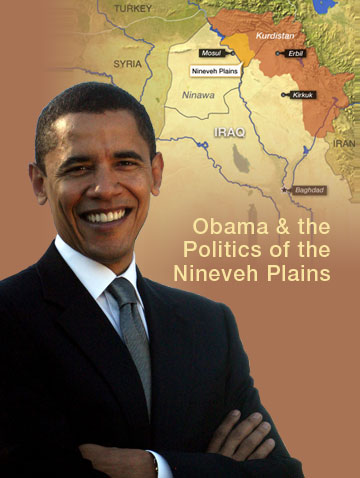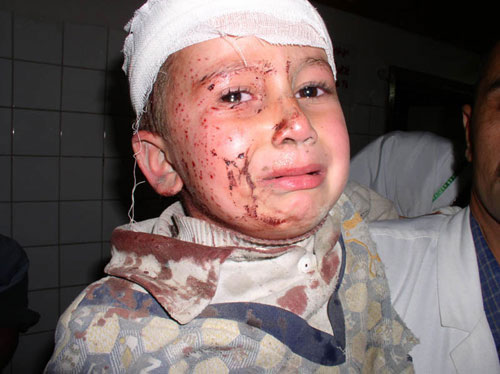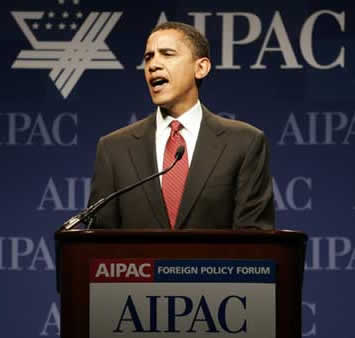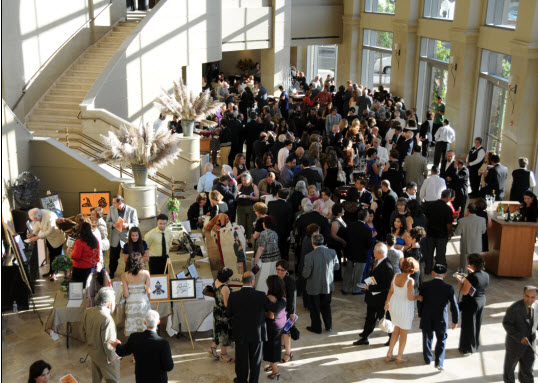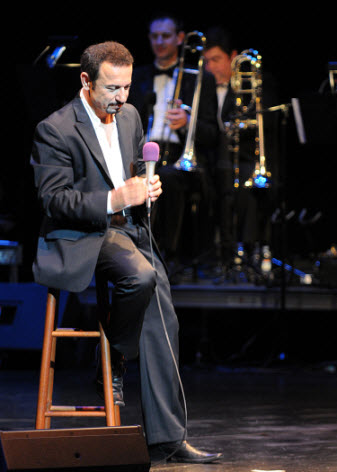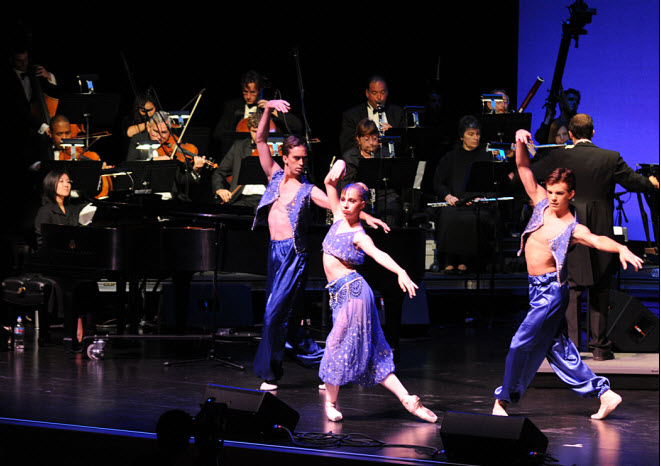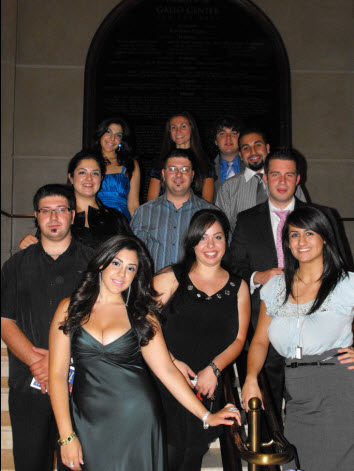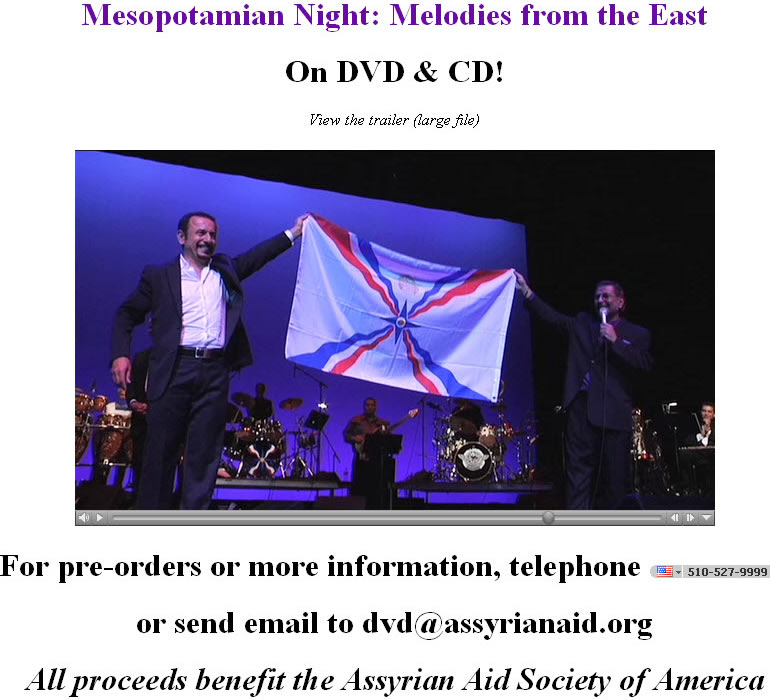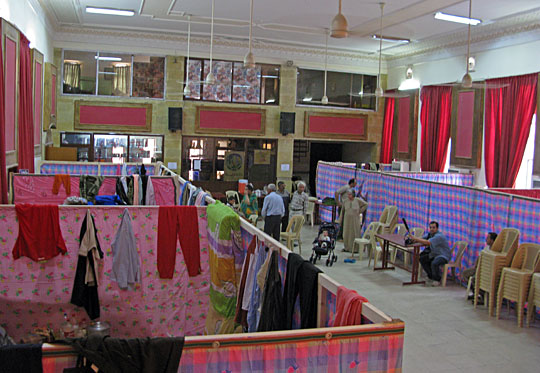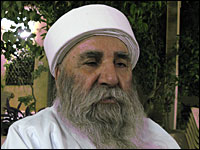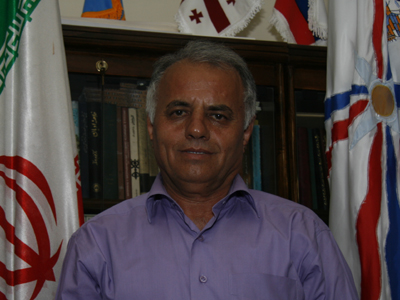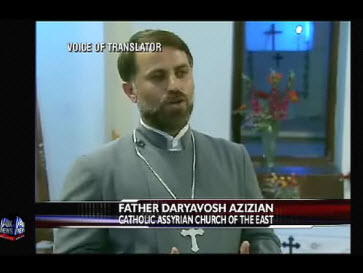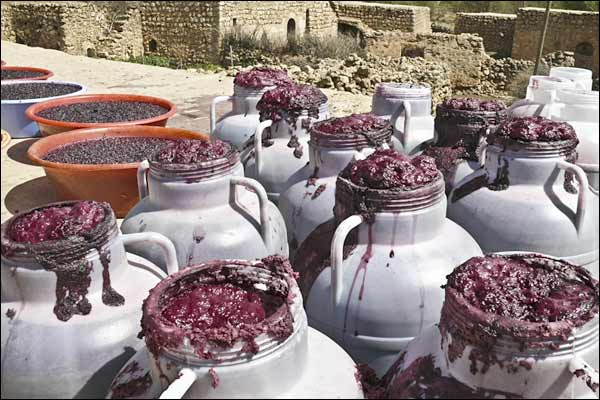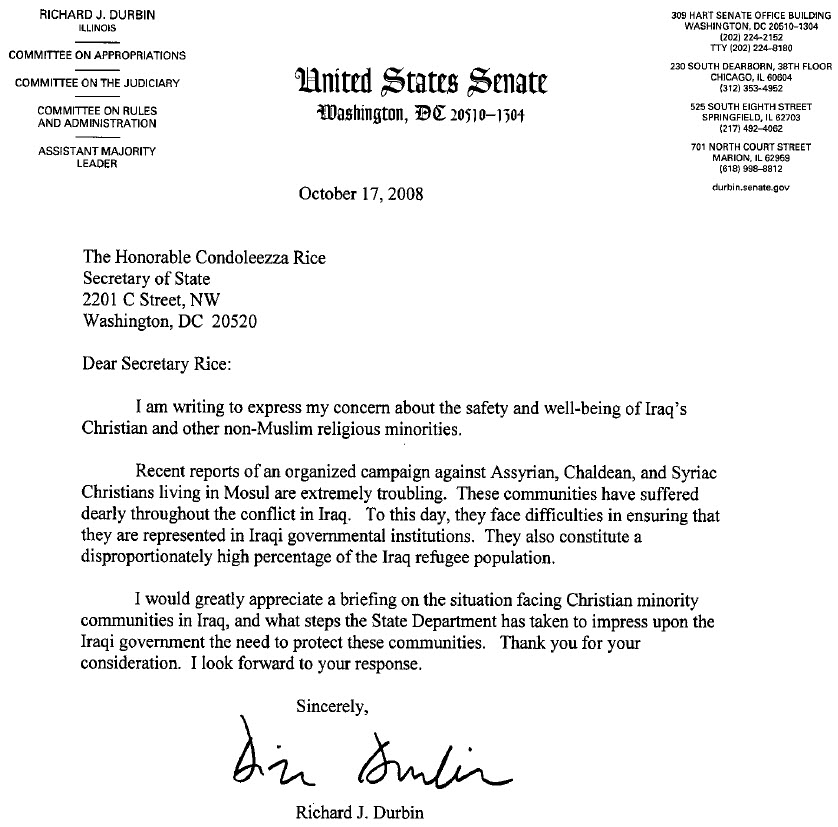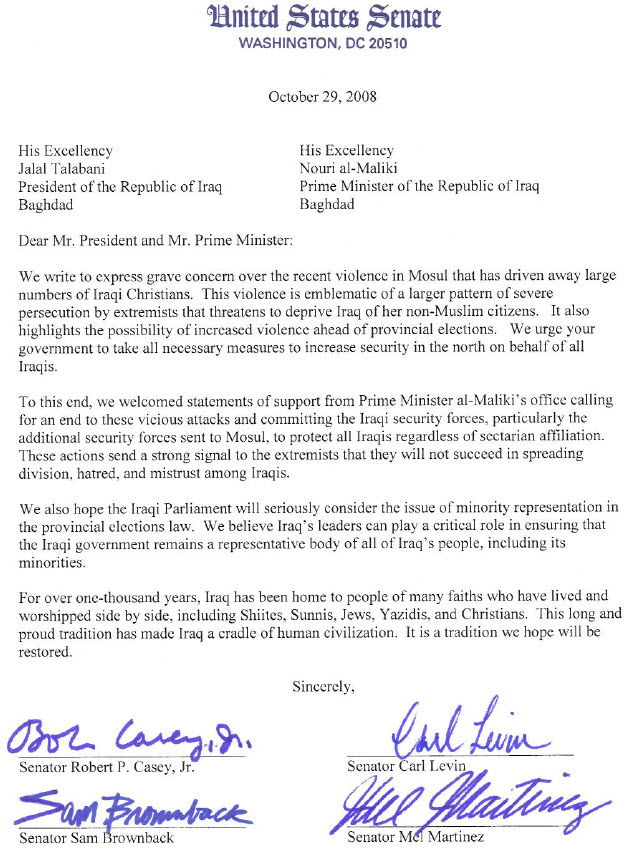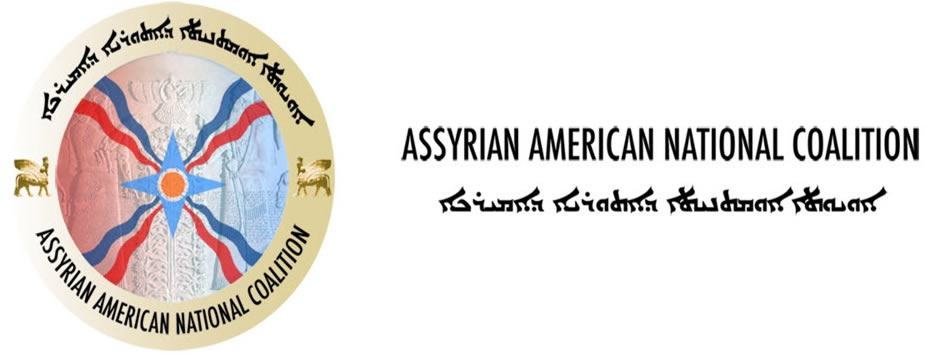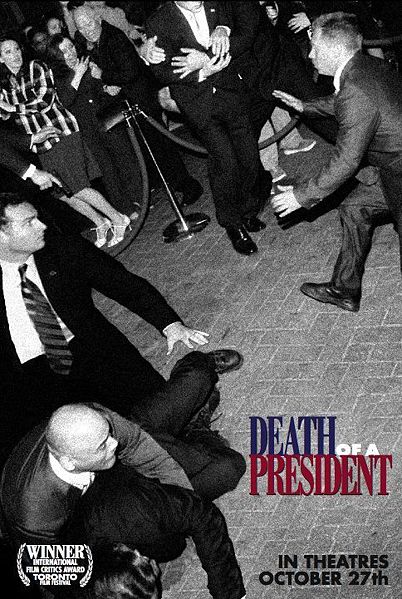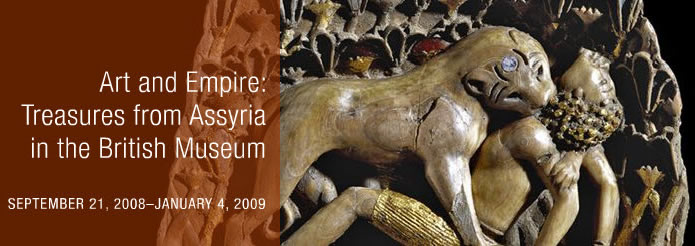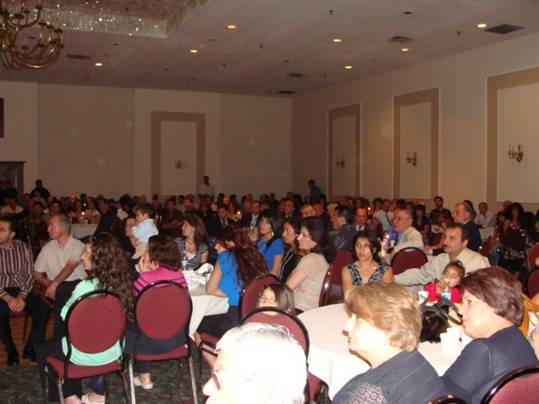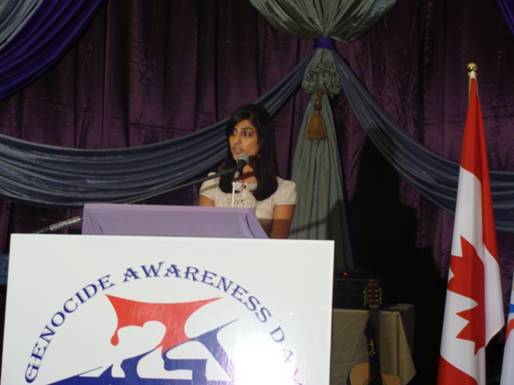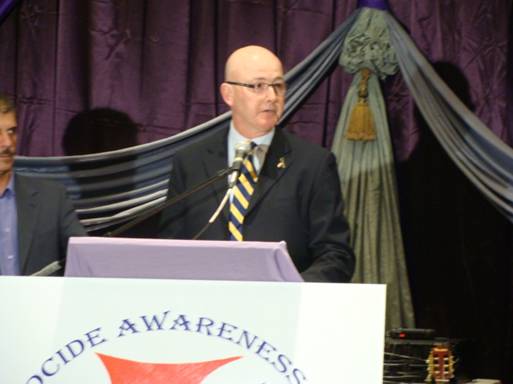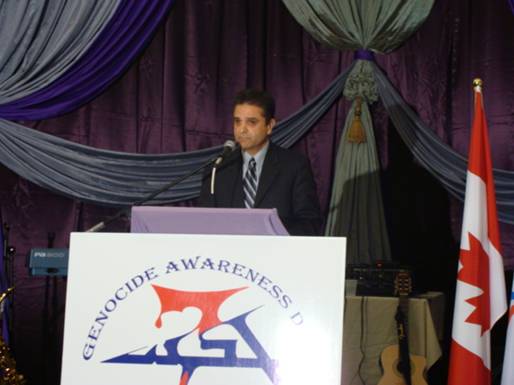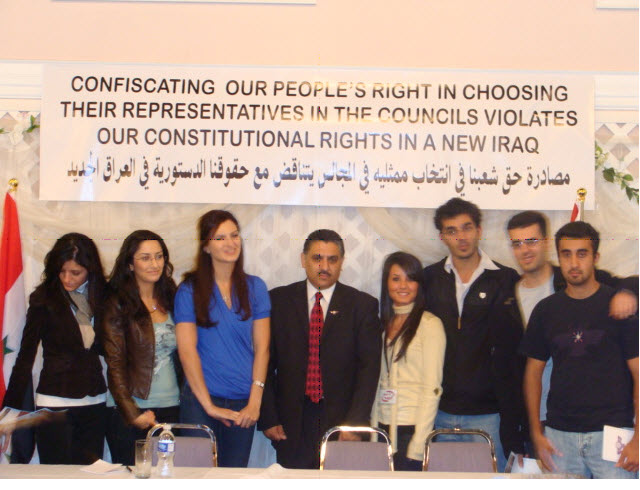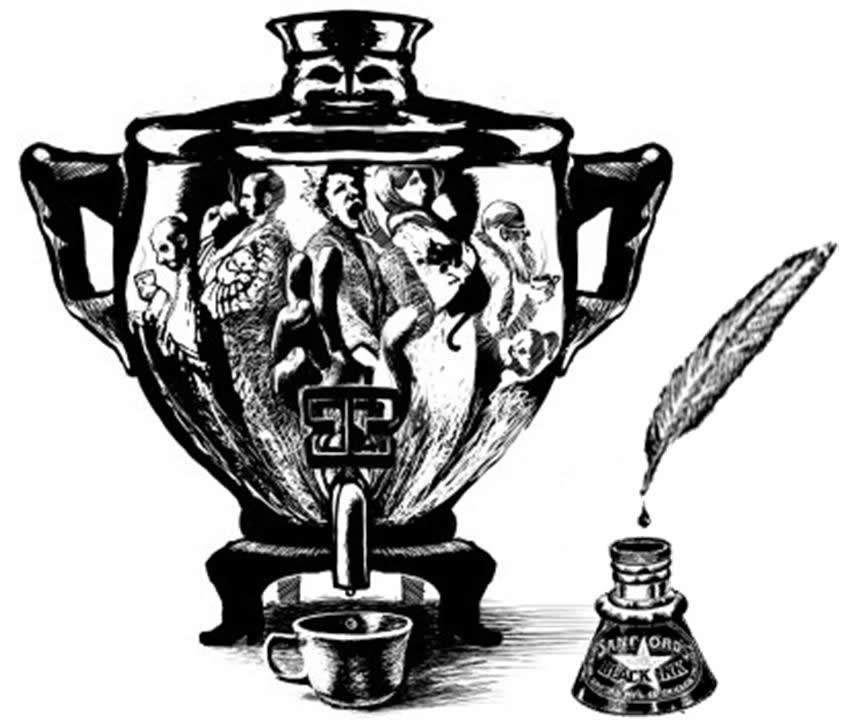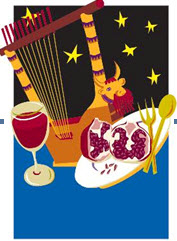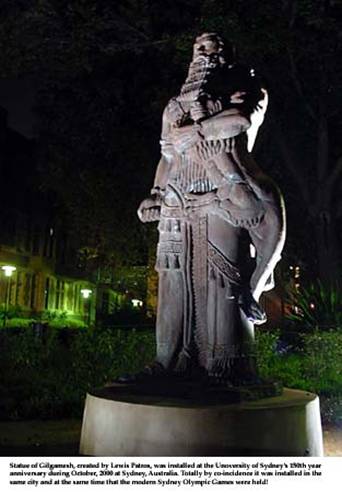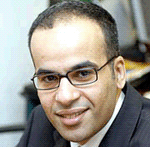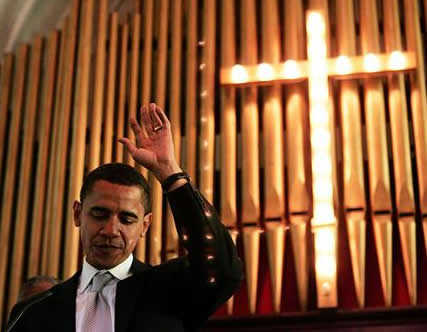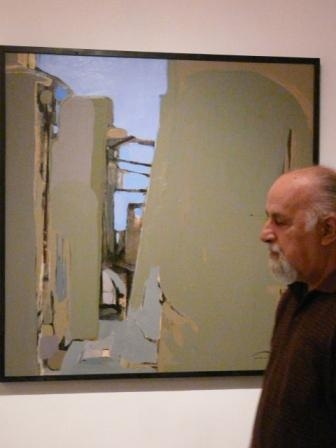A statement from the National Council of Churches in Australia
| FOR IMMEDIATE RELEASE |
8 November 2008 |
Violence and persecution against minority groups in Iraq continues, including communities of Christians which have been in existence for over 1500 years. The Assyrian Church of the East, as one of the Churches most affected, has mobilised itself worldwide to call attention to the crisis, and seek help where help can be found. Other Churches under extreme duress are the Syrian Orthodox, Coptic Orthodox, Armenian Apostolic, and Chaldean.
Prior to 2003, 4% of Iraq’s population was Christian. Yet 40% of Iraq’s 2.2 million refugees are Christian, which indicates the seriousness and disproportionate degree of violence and persecution to which Iraqi Christians are being exposed. “No one has been untouched by grief either by personal loss or to see their country torn apart by violence,” said Bishop Mar Meelis Zaia, Australian head of the Assyrian Church of the East. According to Church sources this exodus is the result of a campaign of violence, murder, terrorism, threats, and intimidation targeted at the Christian minority.
Attacks have escalated since September, when the electoral law was changed to remove the system of quotas that ensured minority groups representation on provincial councils. The result of government investigations and the arrest of about 12 people in relation to the latest wave of attacks are being awaited.
The international Assyrian Christian community is raising money to help. Local parishes are collecting money to help the Assyrian Church of the East Relief Organisation (ACERO) provide aid for people in the city of Mosul, where the recent escalation of attacks has been most severe. In the long run the hope of those fleeing the country is for a self-governing administrative region within Iraq.
The National Council of Churches in Australia (NCCA) stands in solidarity with Iraqi Christians, and the Assyrian Church of the East which has been a member Church of the Council for many years. “We are distressed to hear of the suffering of Christians in Iraq, and the deliberate and targeted attacks which they are experiencing,” said the Rev. John Henderson, the General Secretary of the NCCA. “We continue to ask the Australian government to take this situation into account in its consideration of support for Iraqi refugees in Syria and Jordan, resettlement plans for Iraqi refugees once the country finds peace, and support for repatriation when it is safe to return.”
We urge the Australian Government to:
- Increase the level of aid to Iraq’s internally displaced people and Iraqi refugees in Jordan and Syria, and;
- Increase Australian refugee intake levels for the affected population.
Statement by UNPO General Secretary Mr. Marino Busdachin
Andrew Swan
Project Coordinator (Brussels)
Email: unpo@unpo.org
Tel.: +31(0)703 646 504
GSM: +32(0)472 577 518
Fax: +31(0)703 646 608
www.unpo.org
P.O.Box 85878
2508 CN The Hague
the Netherlands
Following the removal in September 2008 of Article 50 of the Iraqi Provincial Law, and the subsequent political stalemate, UNPO has issued a statement calling for the reinstatement of this crucial article and has communicated its concern to key embassies in Europe and Iraq urging for a swift resolution of this impasse.
To view the statement issued by the UNPO General Secretary, Mr. Marino Busdachin, please consult the UNPO website: http://www.unpo.org/content/view/8775/81/ or the PDF version of the statement which is attached to this email for convenience.
UNPO will continue to monitor events closely, but would welcome feedback on events as they unfold from affected parties.
11 October 2008
On 24 September 2008, Iraq’s Council of Representatives voted to eliminate
Article 50 of the Provincial Law - an article that had passed into legislation
only two months earlier, on 22 July 2008.
Article 50 would have reserved a total of fifteen seats in provincial councils for
ethnic and religious communities such as the Assyrians, Mandaeans,
Shabaks, Turkmen, and Yezidis, all of whom are groups that form an
important, but threatened, part of Iraq’s rich cultural mosaic.
The removal of these reserved seats will severely weaken the representation
of these groups at the provincial level in Iraq. It will also be a set back for
Iraq’s ambition to develop a pluralistic, tolerant, and democratic society.
Iraq’s minorities have shared the suffering with the other groups in Iraq during
the years of the dictatorship and have sought to be active participants in the
democratic process of the new Iraq. The decision to remove Article 50 will
limit this unnecessarily.
UNPO therefore calls on the government and the Council of Representatives
of Iraq to reinstate Article 50 as soon as possible and urges the United
Nations, European Union, and United States of America to support Article 50
and its aims.
Los Angeles Assyrians Protest Iraq Election Law
Courtesy of the Christian Post
6 October 2008
By Ethan Cole
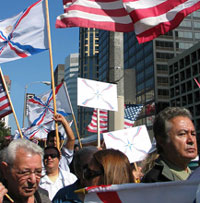 |
Photo by Rosie Malek-Yonan |
On Sunday, 5 October, in Los Angeles about 400 Assyrian Americans demonstrated against a recent election law passed by the Iraqi Parliament that removed Article 50 that reserves seats for Christians and other minorities on Provincial Councils.
Protesters, who gathered at the Federal Building in Los Angeles, demanded the Iraqi Parliament to reinstate Article 50, which was dropped from the provincial election law on 24 September.
“The Assyrian nation is making an appeal not just to the Iraqi government, the United States and the United Nations, but to the citizens of the world to stand with us to reclaim our rights and the right to representation,” said Rosie Malek-Yonan, an Assyrian actor, director and author of The Crimson Field at the rally.
Malek-Yonan emphasized that Assyrians are the indigenous people of Mesopotamia, or modern-day Iraq. She also noted that the group, which was one of the first nations to accept Christianity in the first century A.D., still speaks the language of Christ – Aramaic.
Now, after living in the region for some 6,000 years, minority Assyrian Christians in Iraq are denied their “most basic human rights,” said Malek-Yonan.
“Our churches have been targeted and destroyed because they represent Christianity,” Malek-Yonan lamented. “Our clergy have been brutally dismembered and murdered. Our children have been victims of hate crimes. Our women have been kidnapped and raped. Our men have been kidnapped and killed. Our businesses and homes have been destroyed.”
Islamic extremists have forced Assyrians to leave Iraq in droves through systematic attacks, relentless abductions, death threats, and destruction of Christian-owned properties.
The new election law will further silence the already extremely oppressed Assyrian population in Iraq, protesters argue.
Opponents of the new law pointed out that there is a fixed quota of 25 percent for women, but no other Iraqi minorities.
“We are calling on Iraq's Presidency Council and members of the Iraqi Parliament and lawmakers to immediately reinstate Article 50,” Malek-Yonan said.
U.N. special representative Staffan de Mistura criticized members of Iraq’s parliament last week for dropping Article 50, and has called on lawmakers to reinstate it by Oct. 15.
“With the removal of Article 50, so-called ‘democratic’ Iraq will shift back to being a conservative Islamic State that will no longer recognize the rights of its minorities, particularly the Christians,” Malek-Yonan warned.
“The reconstruction of Iraq cannot succeed when the rights of the country's minorities are stripped from them.”
Before the 2003 U.S.-led Iraq war, there was an estimated 1.4 million Assyrian Christians. Now the number has plummeted to less than half a million. According to the U.N. High Commissioner for Refugees, Christians make up nearly half of those fleeing Iraq even though they make up only about three percent of the country’s population.
Ms. Rosie Malek-Yonan's Speech
© 2008 Rosie Malek-Yonan. All Rights Reserved.
My name is Rosie Malek-Yonan. I am an Assyrian. Today I stand before you on behalf of my
Assyrian nation in Iraq.
We Assyrians come from many communities and belong to various churches, denominations,
political groups and speak many dialects. But today we have come together in a voice of
solidarity.
The Assyrians are the indigenous people of Mesopotamia, presently Iraq. Today’s Iraq is our
ancestral homeland. It was our home long before the Arab invasion and long before Britain
carved Iraq out of the remnants of the Ottoman Empire in the 1920’s. Our handprint is
everywhere in a region rich with Assyrian history, culture and tradition.
We Assyrians still speak the language of Christ and were the first nation to accept Christianity in
the first century A.D. We have lived in the region for the past 6,000 years even after the fall of
Nineveh, our capitol. The Assyrian nation is deeply rooted in the region and has managed to
maintain its identity for centuries despite political, historical and geographical changes
throughout the centuries.
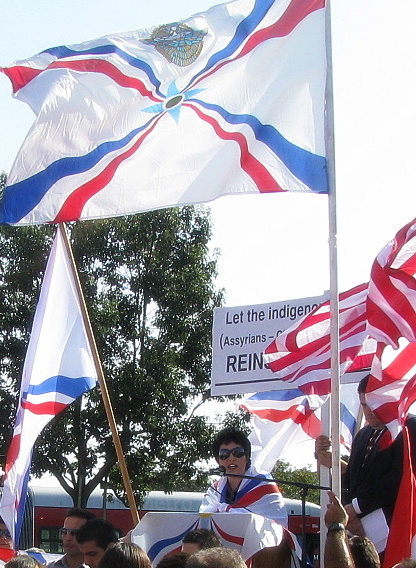 |
Ms. Rosie Malek-Yonan speaking on the Assyrian identity and lack of human rights for Assyrians in Iraq before the Federal Building in Los Angeles. |
Since the beginning of the Iraq War in 2003, the Assyrian nation has been under siege, facing far
greater danger than the average Moslem Iraqis. As minority Christians living in Iraq, not only
have we been denied our most basic human rights, but Islamic extremists have been forcing
Assyrians out of Iraq through various tactics such as deliberate and systematic attacks and
continuous abductions by merciless kidnappers who leave Assyrian families mourning their
loved ones even when a ransom is paid. Assyrian lands and property are confiscated and
families driven out of their homes.
Our churches have been targeted and destroyed because they represent Christianity. Our clergy
have been brutally dismembered and murdered. Our children have been victims of hate crimes.
Our women have been kidnapped and raped. Our men have been kidnapped and killed. Our
businesses and homes have been destroyed.
We have been paying ransom to our captors since the beginning of the war. Our community has
been dispersed but our spirit is still not broken. We will not be severed.
Our 1.4 million population before the Iraq War has now been dwindled down to less than half a
million. Assyrians still living in the interior of Iraq, are subjected to violent hate crimes and their
human rights are disregarded. But we have not given up hope. We are still standing and have
not sought revenge. We have not fought violence with violence.
Assyrian refugees who have crossed the border from Iraq into Jordan, Syria and Lebanon are
living in squalor conditions. Where they were once productive members of society, they are now
reduced to living as refugees in poverty and neglect. We, who have gathered here today, speak
for them. We are the voice of members of our Assyrian nation in Iraq who cannot be heard
today.
Recently Iraq’s three-member Presidency Council approved and adopted a new and long-awaited
Provincial Election Law, removing the final stumbling block for polls to proceed in early 2009.
This law will allow the new Provincial Councils to push ahead with economic reconstruction in
Iraq.
On September 24, 2008, Iraq’s 275-member Parliament passed the Provincial Election Law but
in a move that has stunned the minority citizens of Iraq, particularly the Assyrians, and has
drawn criticism from the United Nations, members of the Iraqi Parliament removed Article 50, a
key clause that would have reserved seats on Provincial Councils for Christians and other
minorities.
The new law allows a fixed quota of 25% for women, but other Iraqi minorities, such as
Christians and Yazidis, have been omitted with the removal of Article 50.
We are calling on Iraq’s Presidency Council and members of the Iraqi Parliament and lawmakers
to immediately reinstate Article 50.
On Thursday October 2, 2008, Staffan de Mistura, a UN special representative, disapproved of
the removal of Article 50 and called for it to be reinstated by October 15.
Despite the fact that this bill is now effectively a law, the Iraqi Parliament can amend the
legislation.
The Assyrian nation is making an appeal not just to the Iraqi government, the United States and
the United Nations, but to the citizens of the world to stand with us to reclaim our rights and the
right to representation.
With the removal of Article 50, so-called “democratic” Iraq will shift back to being a
conservative Islamic State that will no longer recognize the rights of its minorities, particularly
the Christians.
The reconstruction of Iraq cannot succeed when the rights of the country’s minorities are
stripped from them.
As the indigenous people born in the cradle of civilization, the Assyrian identity must be
recognized and preserved and, therefore, Assyrians demand representation in the Iraqi
Parliament as an integral part of Iraq’s future.
Regardless of their numbers, the Assyrians will always remain in the region and will continue to
call the land between the Tigris and Euphrates their ancestral and rightful home.
The Assyrians are entitled to fundamental rights and to representation in the government of which they are citizens.
Democracy in Iraq will fail if it does not treat all members of its society equally under the law.
The removal of Article 50 will ensure the failure of democracy in Iraq and will ensure not only
discrimination against Assyrians in their ancient homeland, but will treat them as 2nd class
citizens.
Assyrians have already paid a heavy price since the beginning of the Iraq War. The liberation of
Iraqis must encompass all its citizens, including the Assyrians, and not just the Sunni, the Shi'ites
and the Kurds.
The removal of Article 50 suppresses the rights of Assyrians and other minorities. If this is a means to remove the ethnic structure of Iraq, it will not. The removal of Article 50 will not erase
the diversity of cultures, religions and ethnicities that make up Iraq. But what the removal of
Article 50 will do is to revert Iraq to the old path of dictatorship in dealing with its minorities.
Assyrians from all corners of the world, including Iraq, have come together in peaceful
demonstrations in a voice of solidarity against the removal of Article 50. Today Assyrians of
Southern California are adding their voice to our brothers and sisters around the globe. Iraqi President Jalal Talabani, Prime Minister Nouri al-Maliki and Foreign Minister Hoshyar
Zebari, have stated in various interviews in the past few days that they will be amending the
change in the law immediately.
Though one cannot always count on the promise of politicians, the Assyrian nation is counting
on them to do the right thing and to restore Article 50 in order to ensure that the law protects the
rights of Assyrians and all minorities.
If the removal of Article 50 is meant to act as a final blow to the systematic attacks on Assyrians
to ensure a complete uprooting of these Christians from Iraq through mass migration or
assimilation to result in a complete loss of the Assyrian identity, be rest assured that the Assyrian
identity will never be lost.
Mr. David William Lazar's Speech
Our gathering here today is to protest the latest round of injustice and discrimination against our nation in the new and supposedly “democratic” Iraq by its parliament and the Presidential council headed by the Kurd, Jalal Talabani. This Kurdo‐Islamist parliament that was elected in 2005 has been for the most part of its life a dysfunctional legislative body laden with sectarianism and ethnic fascism. While it has failed to improve the lives of ordinary Iraqis because of deep divisions between its two main factions controlling it, it has and on numerous occasions managed to legislate laws marginalizing the rights of smaller ethnic groups such as the Chaldean Assyrian Christians, Yazidis and Shabaks.
At this time I would like to take few minutes and look briefly at some aspects of the history of relations between Kurds and our nation.
I’m almost certain that everyone here is aware of the history of massacres committed by Kurdish aghas and their tribesmen against us, from the days of the criminal Bader Khan and his ruthless campaigns against the autonomous Assyrian tribes of the Hakkiari region to the cowardly killing of Mar Benyamin Shimun, Patriarch of the Church of the East by Simko and his gang of thugs to the massacres of 1933 committed by the Iraqi army under the leadership of Bakir Sidqi, a Kurd, and the Kurdish irregulars that joined in and actively participated in the frenzy of murder that lasted several days , these brave Kurdish souls are always gallantly ready to kill women and children whenever the opportunity arises. I don’t want to dwell on these events because it will take too long and we would be dwelling on the past.
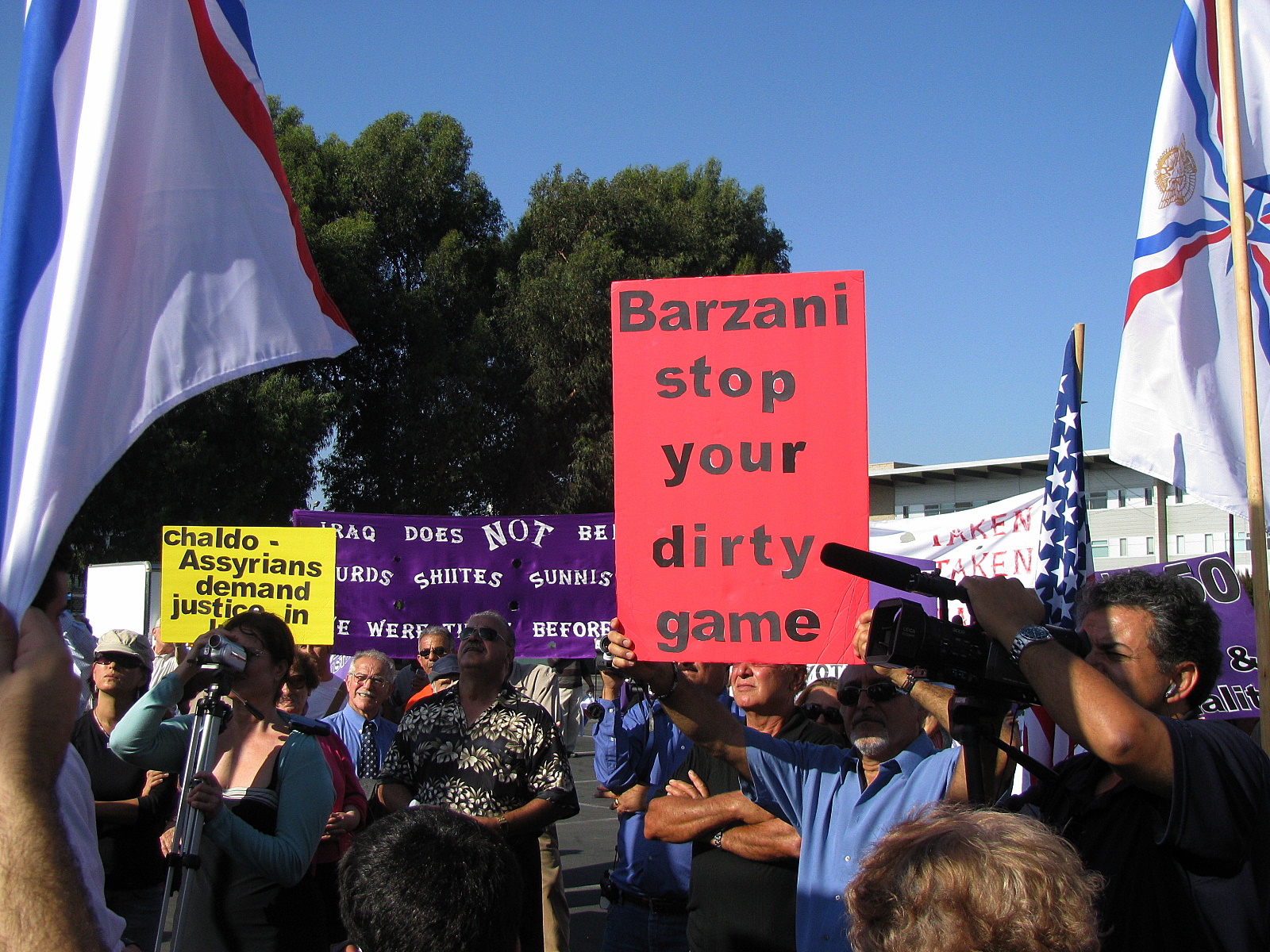 |
Many of you are aware that Kurds and until this day refer to us as “Falah”, which means a farmer or someone who toils the land. Please don’t be fooled by this term. The early Ottomans, the overlords of the Kurds and after their conquest of Byzantium with the sacking of Constantinople made it mandatory for every irregular Kurdish fighter that participated in the Ottoman military campaigns of mass murder, pillage and looting, to have at least one “Falah” to work his land and feed the Kurdish irregular and his family. This was in addition to Jezziah imposed on Christians by Islamic shariaa law, for all practical purposes this “Falah” system was slavery. This went on for several centuries until the defeat of the Ottomans at the hands of the allies and the removal of the last Caliph from his throne in Istanbul. Some of you will ask how this relates to the removal of article 50 that guaranteed us seats in the upcoming provincial elections. My answer to those of you who are wondering is that the mentality of the present day Kurdish tribal leader has not changed; he still considers us “falah” and wants to continue to make our decisions for us. He knows that he can’t own us like his ancestors did but he wants to own our political decision and our ancestral land. They want to annex what is left of our homeland to their Kurdish region under the false pretext that they can protect us from Islamists and Arabs and that we can practice our Christian religion with complete freedom. As a matter of fact they already refer to us as Christian Kurds.
You ask why they want our land when they have so much of it. Again the answer is very simple, the tribal mentality of the current Kurdish leadership represented by Barzani and Talabani (or for short , a compound name, Tarazani) is not very different from that of Bader Khan, the one –eyed warlord of the 19th century, basically to grab as much land as possible and remove the rightful owners by eliminating them or force them into Islam, the only thing different these days, is that they will allow us to keep our religion, because it will make them look as progressive and moderate Muslims to their Western allies,
however, we will have to forget our ethnicity of thousands of years and proudly call ourselves Christian Kurds or use the newly invented, hip and improved name “Christian Kurdistanies”. The other reasons that Tarazani want to annex the Nineveh plain region is that they want to be able to link up with what they refer to as Eastern Kurdistan which is in Syria, if and when they secede from Iraq and declare their province an Independent Kurdistan. Another good reason is that there are proven oil and perhaps natural gas reserves in the Nineveh plain and they want to lay their hands on it. My dear friends, gone are the days when a Kurdish agha’s wealth was measured by the size of the flock of sheep that he owns, today, an agha’s wealth is measured by the number of oil wells he owns.
Is there democracy in the Kurdish province? The KRG wants the world to believe that there is. Let’s examine few facts. There are two main Kurdish political parties that have been around for many years, one is the Kurdistan Democratic Party and the other is the Patriotic Union of Kurdistan. Both organizations have had the same person as their secretary general for more than twenty years and they will more than likely continue in their positions until the day they die. How can they govern a region democratically when they don’t practice democracy within their own political parties? Democracy doesn’t happen in a region, or a country by waving a magic wand and “poof” democracy is created. Democracy is a foreign concept to the province, because if there is democracy, there would be freedom of press and speech and trust me when I tell you there is no such thing as freedom of press or freedom of speech. If there is democracy there, then there would be independent student organizations that don’t belong to one of the two parties. If there is democracy in the KRG controlled province, then there would be others that don’t have Barzani or Zibari as their last names, running the regional government. If there is democracy there, then, there should be an independent judicial system that would bring the killers of Francis shaboo, Helen Sawa, Edwar Khoshaba and many other s, that I don’t have their names, to justice. If there is democracy in the Kurdish region, then our people would get back their lands that were grabbed by Kurdish usurpers. Where there is democracy there is justice, in the Kurdish province, the law of the jungle prevails, where the weak falls prey to the strong.
You ask why we should care if there is democracy in the Kurdish province. And my answer is; we should care, because we want the Kurdish population to have better leaders and only by establishing real democracy they can achieve that. We care, because they have suffered as much as we have suffered at the hands of their aghas. We care because we want to open a new page in the relationship between our two nations.
Therefore I call on the Kurdish population to demonstrate in solidarity with us and ask that article 50 be restored immediately, because in a true democracy, it’s the majority that protects the rights of a minority. I call on the Kurdish population to rise in solidarity with us, because we were there when you needed us, we helped you in your struggle against the successive brutal regimes in Baghdad, we opened our homes and fed and housed your peshmerga, we joined your movement’s ranks and our young men gave the ultimate sacrifice and became martyrs for your cause, it’s now your turn to return the many favors. No other nation has given for the cause of another as much as we have sacrificed for yours. We did it because we saw injustice committed against you. We sacrificed for your cause because we believed that together we can achieve equality and justice for both of our people on our lands. We did it
because we believe that the majority of the Kurdish people are good at heart and that only their leaders are corrupt and wish us ill.
In the end, I say to Jalal Talabani, you wrote few lines in your book apologizing to us on behalf of the whole Kurdish nation for the treacherous act of murder of our patriarch Mar Benyamin shimun by the thug Simko, well, we never asked for an apology from the Kurdish people, because the Kurdish nation didn’t commit that despicable act of murder but rather a corrupt lawless tribal leader did. Simko killed our religious and temporal leader of the time; your actions of the past few days are killing the future and survival of our people as a nation on its ancestral lands. I wonder how long we will have to wait before another Kurdish Agha writes a book about Kurds and Kurdistan and in it dedicates few lines to us apologizing for your treacherous actions.
To Masoud Barzani, is this how your father the late Mullah Mustafa Barzani would have treated us, his allies? Do you think that he would have rewarded us for struggling side by side with you by taking our lands, terrorizing our villagers, murdering and raping our women? I don’t believe so. Why do you then turn a blind eye to such crimes committed by gangs of thugs that belong to your political party? Why do you continue to undermine our national aspirations by conspiring with others against us? Why do you think that appointing present day falahs’ amongst us to positions of power will advance the national interests of your faction of the Kurdish people? Why do you insist on ostracizing our political will? Masoud, if you don’t reverse your policies of injustice and Kurdish fascism your name will be in the dust bin of history, next to that of the other infamous Kurdish murderers such as the likes of Bader Khan, Simko and Bakir Sidqi.
Long live our nation on its ancestral homeland.
Long live the republic of Iraq free and united.
U.S. Senators Voice Concern Over Mistreatment of Assyrians
(ZNDA: Washington) On 17 October, Senator Dick Durbin (D-IL), the second highest ranking Democrat in the U.S. Senate, sent a letter to Secretary of State Condoleeza Rice, urging her to brief his office regarding what the U.S. has been doing to protect Iraq's Assyrians. The letter was submitted in response to the Assyrian American National Coalition's request for immediate action. Senator Durbin's response was swift.
The following is a copy of the letter received at Zinda Magazine's office in Washington:
On 29 October in a letter spearheaded by U.S. Senator Bob Casey (D-PA), Senators Carl Levin (D-MI), Sam Brownback (R-KS) and Mel Martinez (R-FL) urged Jalal Talabani, President of the Republic of Iraq and Nouri al-Maliki, Prime Minister of the Republic of Iraq, to take all necessary measures to end the violence in the north against Iraqi Christians. According to the United Nations, thousands of Iraqi Christians have fled Mosul in reaction to the increased violence and intimidation.
“This violence is emblematic of a larger pattern of severe persecution by extremists that threatens to deprive Iraq of her non-Muslim citizens. It also highlights the possibility of increased violence ahead of provincial elections,” the Senators wrote.
They went on to write, “We urge your government to take all necessary measures to increase security in the north on behalf of all Iraqis.”
Full text of the letter is below:
Assyrian Church of the East Patriarch Calls for an Administrative Unit in North Iraq
Courtesy of the Assyrian International News Agency
20 September 2008
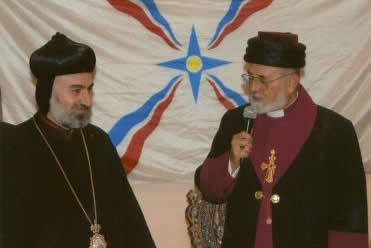 |
His Holiness Mar Dinkha IV (right) and Mar Hazail Soumi in Brussels after a joint prayer session on 16 September. |
(ZNDA: Brussels) On 16 September the head of the Holy Apostolic Catholic Assyrian Church of the East, His Holiness Mar Dinkha IV, conducted a prayer service at the Syriac Orthodox Church in Brussels. After the service His Holiness Mar Dinkha IV, asked that all Assyrians work together to establish an Assyrian-administered unit in northern Iraq's Nineveh Plains region. His Holiness emphasized that the Assyrian administrative area must comply with the Iraqi constitution and the United Nations regulations.
The Patriarch reiterated that Assyrians are under attack in the Middle East and thus it is necessary for the Assyrians from the different Christian denominations to unite.
Two weeks earlier Bishop Ablahad Gallo Shabo of the Syriac Orthodox Church in Sweden, in an interview with Ishtar Television, called for an Assyrian self-governance in the Nineveh Plains region.
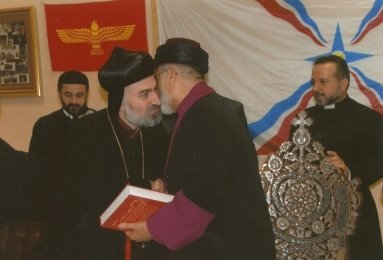 |
On 7 August of this year, during a speech given on the occasion of the August 7th Assyrian Martyrs' Day in Chicago, Mar Dinkha IV told a crowd gathered to dedicate a statue to the memory of the Assyrian patriarch, Mar Benyamin Shimmun (assassinated by a Kurdish warlord in 1918) the following: "Today in Iraq, especially in Bet-Nahrain, a "council" has been formed by Mr. Sarkis Aghajan from the Chaldean Church, the Syriac Church, and the Church of the East. This council is working as one people and has requested a single leadership for the Nineveh Plains. This is a beautiful effort. We bless this effort and this conduct. We hope that all political parties and civic groups will join in to support this good work and take part and responsibilities, to work together. Because we too have rights as do Kurds, Arabs, and Turks in our homeland as Assyrians in Bet-Nahrain, Iraq (click here to view video).
Mor Hazail Soumi, Bishop of the Syriac Orthodox Church in Belgium and France, in a speech after the prayer service said: "We are one nation but history has divided us; it is time we work for unity".
In a show of solidarity the prayer service was conducted by clergy from the Apostolic Church of the East and the Syriac Orthodox Church.
The calls for the Assyrian rights in Iraq and Assyrian unity by His Holiness Mar Dinkha are adding momentum to requests made public by several other church leaders from different Assyrian church denominations.
AANC Congratulates New AANF Officers
| FOR IMMEDIATE RELEASE |
10 September 2008 |
Assyrian American National Council
Washington, DC
To the newly elected board of the Assyrian American National Federation:
We would like to formally congratulate you on your newly elected board: Adad Ashurseen (President), Zeena Tawfik (Vice President), Leonard Jacob (Assistant to the President), Marlene Khamoo (Executive Secretary), Youel Isho (Assyrian Secretary), Linda Babagouin (Treasurer), Janey Golani (Editor-in-Chief of the Assyrian Star Magazine), and Board Advisors Hawel Hawel and Atour Golani.
This year, at the Jubilee celebration of the 75th National Convention in Hartford, there were no losers. It was clear to all those who attended and participated in the gathering that Assyrians from all over the country can work hard to hold our Diaspora nation together, and they are an example for all of us in the next generation. The debt we owe you, and those who came before you, is incalculable. So we owe you not only congratulations but thanks.
We also want to congratulate you for putting the disagreements, quarrels, and hurt feelings of the past behind us, and also for recognizing that the unity of our nation is more important than any one institution, any one person, any one belief, or any one issue. There simply is no disagreement or ideological split that can be more important than the survival of our nation through the unity of its leadership. Your ability to move forward together is a testament to the durability of our nation. If you had failed, and allowed the fleeting details of today to further dissolve the bonds that hold us together, a terrible crime would have been committed not against one another, but against many generations of Assyrians to come. Your commitment ennobled you.
We work for our nation not simply to pay tribute to those who came before us, nor to benefit ourselves. We do it for the Assyrians that are not yet born. In a mere handful of generations, most if not all of us will be forgotten - but every day we create the world that our descendents must live in. Will we hand them a nation broken by pride, spite, and hard-heartedness? Or will they rather inherit a Nation united by eternal principles of brotherhood and sisterhood, cultural preservation, equality, and love?
By pledging to put the arguments of yesterday where they belong—in the past—and preparing a new generation of leadership to lead our nation to a unified tomorrow, you made a solemn commitment. We do not doubt that you will honor it, and put the unity of our nation above the fleeting details of today’s disagreements.
Sincere Regards,
The Assyrian American National Coalition (Washington, D.C.)
ChaldoAssyrian Syriac Youth Council of America (U.S.A.)
Assyrian Preservation Society (Arizona)
Diyarbakir TurAbdin Assyrian Association (New York)
AtourChaldo Youth Nationalistic Association (California)
 To learn more about AANC – please register at www.aancoalition.org. Become a member today and receive regular Congressional updates, join in on quarterly conference calls, receive annual report, and much more. To learn more about AANC – please register at www.aancoalition.org. Become a member today and receive regular Congressional updates, join in on quarterly conference calls, receive annual report, and much more.
Assyrian Medical Society Formed, Independent of AAS
| FOR IMMEDIATE RELEASE |
29 October 2008 |
Assyrian Aid Society of America
Michael E Bradley, Administrator
T: 510-527-9997
F: 510-527-6633
michael@assyrianaid.org
BERKELEY, CALIFORNIA: The Assyrian Aid Society of America is today announcing that its Medical Relief Committee is now an independent and autonomous organization, the Assyrian Medical Society, that will continue to provide life-saving surgeries and medical treatments for needy Assyrians overseas.
“The Medical Relief Committee has been so overwhelmingly successful in bringing Assyrian patients to the United States and to hospitals around the world for these life-saving and life-transforming operations that it is crucial for them to now have their own dedicated organization,” said AAS-A President Narsai M. David. “We look forward to even more amazing achievements from this remarkable team, and AAS-A will continue to do whatever we can to assist.”
Dr. Samir Johna adds, "We are grateful and indebted to AAS-A for giving us the unique opportunity to start this novel project, and we look forward to continued cooperation between these two sister organizations for the sole purpose of helping Assyrians worldwide."
The Medical Relief Committee was originally a project of the AAS-A Los Angeles Chapter and will remain in Southern California. The committee was funded and later chaired by philanthropist Albert Davidoo with Dr. Samir Johna serving as Medical Director, Youkie Khaninia managing logistics, and AAS-A Director and Chapter Liaison Mona Malik.
The Medical Relief Committee’s most famous case is probably that of Baby Kirillos, the three-month-old Assyrian infant from Baghdad born with a hole in his heart and successfully treated last year at Loma Linda University Medical Center. In the following eighteen months, we were able to provide lifesaving interventions for thirteen additional Assyrians.
The Assyrian Aid Society of America is a charitable 501(c)(3) non-profit organization dedicated to assisting needy Christian Assyrians in northern Iraq and around the world. Over the past 17 years AAS-A has raised over $5.5 million to build schools, staff and supply medical clinics, facilitate life-saving surgeries, rebuild homes, irrigate farmlands, bring electricity to villages, and implement a host of other vital programs and services.
International Partnership for Iraq Heritage
(ZNDA: Washington) In a ceremony on the 16 October at the Iraqi Embassy in Washington the American First Lady, Mrs. Laura Bush announced the launching of the “International Partnership for Iraq Heritage”, a project to be lead by the Department of State, represented at the ceremony by Assistant Secretary of State for Cultural Affairs, Ms. Goli Ameri.
ZINDA ON DUTCH TV |
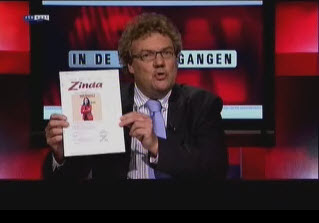 |
The event was also attended by the Iraqi Finance Minister, H.E. Bayan Jabr, Ambassador Hamid Al-Bayati, Iraq's Permanent Representative to the United Nations and a number of High-ranking U.S. officials and some of the Iraqi community figures and senior staff of the embassy.
H.E. Ambassador Samir Sumaidaie, Iraq’s Ambassador to the U.S, delivered a speech welcoming the First Lady and the other honored guests, highlighted the importance of Mesopotamian heritage not only for Iraq but for all humanity and expressed appreciation to the government of the United States for its ongoing support. He added that such help and collaboration, will also bring our two people closer together and will help heal the wounds of war.
Following, that, Mrs. Laura Bush, made remarks formally launching the Iraq Cultural Heritage project which she said would also promote national unity by highlighting the rich heritage that all Iraqis share. She urged everyone to participate in preserving this great Heritage.
The goal of this project is to assist in the preservation of the ancient history of Iraq, through assistance towards the renewal of the Iraq National Museum in Baghdad, helping Iraqi archaeologists re-engage with the world and develop their own indigenous capacity after they have been largely excluded from the larger professional arena for generations. In addition, it aims to implement measures to protect Iraqi archaeological sites and stem illicit trafficking in Iraqi antiquities.
$1.6 Million Shipment of Medicines Delivered to AAS-Iraq
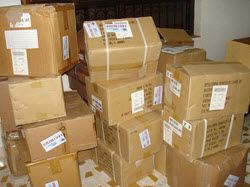 |
The Assyrian Aid Society of America, in partnership with the International Medical Corps (IMC) of Santa Monica, California and Washington, D.C., has delivered a $1.6 million shipment of medicines to the Assyrian Aid Society-Iraq for distribution to clinics, pharmacies, and other medical facilities throughout Northern Iraq.
AAS-Iraq and IMC partnered earlier this year is providing emergency assistance to approximately 500 Assyrian families in the Nineveh Plains region.
Established in 1984 by volunteer doctors and nurses, IMC is a private, voluntary, nonpolitical, nonsectarian organization. Its mission is to improve the quality of life through health interventions and related activities that build local capacity in underserved communities worldwide.
A second shipment, this one composed of medical supplies and equipment, is currently enroute by sea and is scheduled to arrive later in October.
The Assyrian Aid Society of America is a charitable 501(c)(3) non-profit organization dedicated to assisting needy Christian Assyrians in northern Iraq and around the world. Over the past 17 years AAS-A has raised over $5.5 million to build schools, staff and supply medical clinics, facilitate life-saving surgeries, rebuild homes, irrigate farmlands, bring electricity to villages, and implement a host of other vital programs and services.
Michigan No Longer Land of Promise for Iraqi Refugees
Courtesy of the Detroit News
3 October 2008
By Gregg Krupa
(ZNDA: Detroit) Michigan's economy is so bad that State Department is sending fewer Iraqi refugees to the area because of concerns that their future would not be bright.
After a request by relief workers, the policy of bringing Iraqis to Metro Detroit if relatives or friends live in the area was changed to allow only those with immediate family to settle here, according to the State Department.
"The State Department has taken the measure of things and decided it would be better to send them somewhere else, where they might be self-sufficient, instead of coming to Michigan, because the economy is very bad here and we have the highest unemployment in the country," Belmin Pinjic of Lutheran Social Services of Michigan said. The agency is one of several designated by the federal government to provide relief to the refugees.
The war in Iraq has displaced 4.4 million people, according to the United Nations. Two million have left Iraq. The Christian population of the country is under intense pressure, as extremists root them out from villages and homes, officials say. But Muslims, especially those who have been employed by the United States in Iraq, also are seeking refuge in the United States.
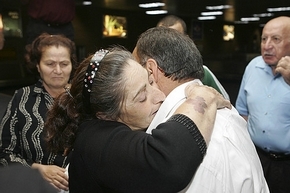 |
Hanna hugs Ibrahim Yousif Dawood at the airport. About 3,000 Iraqi refugees arrived in Metro Detroit just last year. (Velvet S. McNeil / The Detroit News) |
About 3,000 of the 13,000 Iraqi refugees resettled in the country in the last year arrived in Metro Detroit, which is the home to about one-third of all of the Iraqi-born residents in the United States, according to the U.S. Census Bureau.
State Department officials said the policy change was implemented in late June partly because relief workers were having difficulty finding the refugees jobs. The officials, who declined to be quoted by name, citing department policy, said relief workers in Metro Detroit were becoming overwhelmed by the numbers.
"We made the change because people from the agencies were expressing concerns," said an official, who asked not to be named.
Despite requests, he said, the policy change will not be reviewed, because the department does not want to spur a significant new flow of Iraqis to Metro Detroit, he said.
Michigan is home to 35 percent of all Iraqi-born residents of the United States, according the Census Bureau. The vast majority of them live in Metro Detroit, where the Iraqi Muslim community numbers perhaps 12,000 and there are about 90,000 to 105,000 Chaldeans -- Iraqi Catholics -- according to sources in those communities.
That is the largest population of Chaldeans outside of Iraq.
Officials for local relief agencies, selected to handle the refugees, and local Iraqi-American leaders said some of the refugees placed in other states come to Metro Detroit, regardless. Because the financial assistance funneled from the State Department through the relief agencies does not follow them, it will compound the difficulties of resettling them.
In addition to providing $420 as a one-time stipend for each refugee, the State Department also designates an agency to help refugees find housing, employment and educational resources. That approval for assistance from an agency does not travel with a refugee who chooses to relocate, officials said -- even if the agency in another state has a branch in Michigan.
Joseph Kassab, executive director of the Chaldean Federation of American, said he raised the issue with officials from the State Department.
"I explained to them that no matter what you do, if those people are sent somewhere else, they will end up here, no matter what you do," Kassab said, of the federal officials. "If they don't have kin or relatives, they are still coming to Metro Detroit because our people like to live together and we support each other.
"We have people who own businesses who are willing to come forward, and they are doing that now to help them, to provide jobs until they are settled," Kassab said.
Chaldean owners of hotels in Metro Detroit have provided shelter for the refugees, often free of charge, Kassab said.
Meanwhile, the Chaldean Federation is organizing a job fair and will begin providing some automobiles to the refugees with low-cost loans and easy payment terms.
Relief workers say the lack of public transportation in Metro Detroit is often the most difficult barrier to resettlement, because it affects the housing, employment and education of the refugees.
Last year, municipal officials in Warren expressed concerns that a massive influx of refugees would challenge government services, but they said few problems have arisen.
The enrollment of the Warren Consolidated School District has increased this year by about 250 to 15,453, but officials said it is unclear how many of the new students are refugees and that other factors -- like the first year of daylong kindergarten in all of the elementary schools and an influx of former private school students in a bad economy -- may account for much of the increase.
State employment officials say the current number of unemployed in Michigan is 190,300. If all 3,000 refugees are unemployed, that would account for 1.5 percent of those counted as not having jobs.
"The refugees are doing well and prospering," Kassab said. "We are extending our arms to them. The only problem is the transportation issue and we are preparing a program so they will have cars."
Christian Iraqi Refugees Settle in Turlock
Courtesy of the Modesto Bee
30 October 2008
By Adam Ashton
(ZNDA: Turlock) Samuel survived the ambush, but his attackers got rid of him just the same.
Hours after a round of bullets strafed his cab, Samuel and his wife decided to leave Iraq, joining an exodus of Assyrian Christians who no longer felt safe in their country.
"We suffered a lot in Iraq," said Samuel, 44. "I didn't want the same for my children."
Samuel and his wife, refugees who arrived in Turlock three months ago, spoke with The Modesto Bee through a translator on the condition that the paper not publish their real names because they feared for the safety of relatives in Iraq.
It took them more than four years to land in California since that January 2004 evening, when armed men shot up Samuel's Mitsubishi sedan on his way home from work as a taxi driver in Mosul, Iraq's third-largest city. He sped through the trap and escaped without injury.
His city in northern Iraq has grown increasingly dangerous for Assyrian Christians since the war started.
The U.N. High Commissioner for Refugees last week estimated that more than 13,000 of them -- half the city's Assyrian population -- fled Mosul just this month. Threats and attacks appear aimed at driving the Assyrians out of the city, according to the refugee commission.
Some will find their way to Turlock, drawn there because of the city's nearly century-old Assyrian community.
About 250 Iraqi refugees settled in Stanislaus County in the past year, according to the International Rescue Committee. Most are Assyrian, although a few families are Muslim.
Some refugees are losing hope that Assyrians will have a place in Iraq after the war ends and the U.S. soldiers leave. "I don't see any way where we can live over there, where we can claim what was ours," Samuel said.
Samuel left Iraq with his wife, father and three children. They live with his wife's brother, a truck driver who also supports relatives in Iraq. The family receives some government assistance.
They're enjoying the calm they find in a roomy house with a white picket fence. They don't want to return to Iraq. "How could we be unhappy with a television like this," Samuel said, laughing as he gestured to a wall-sized TV in his brother-in-law's living room.
Their son, age 10, and daughters, 4 and 8, cling closely to their parents, showing a stranger shy smiles and deep brown eyes. They're picking up English with partners at Turlock elementary schools.
Looking for a job Samuel is eager to work. He hasn't held a job since he stopped driving the taxi in 2004. He'd like to become a translator when he masters English.
"I worry about it every day," he said.
Samuel rides a bike around town. Shamiran, his wife, walks their kids to school. Both of them are taking English classes in an adult education program.
Shamiran, 33, worries about her family in Mosul, but she managed a joke about how glad she was to see her brother. "I missed him so much, I left everyone else in Iraq," she said.
"There's no fear," Samuel said. "I can go outside, go shopping, ride my bike. I'm at peace."
The tranquility they feel in Turlock often appeared unattainable in the years after the war started in Iraq.
The family couldn't leave Iraq immediately after the ambush Samuel survived. They hid for a month in a village that was known to be safer for Assyrians and returned to Mosul when they heard Kurdish militias had restored some order.
They lived in a state of near-house arrest while they gathered money from relatives to hire someone to take them across the border into Syria. Samuel's children didn't go to school in those 19 months.
"The only people they were allowed to play with were relatives that came to our home," he said.
They'd walk to a market to buy groceries but only in daylight. One Assyrian neighbor, Samuel and Shamiran said, was shot to death in front of his home.
God kept them safe on long journey Chaos in Mosul, a city of 1.8 million, in a way was more threatening than Saddam Hussein's regime. Samuel described the time before the war as one of fear for Assyrians, but one in which they were fairly stable.
He rejoiced with thousands of others when Saddam fell, thinking the ouster of the dictator would clear the way for a better Iraq. That euphoria had passed by late summer in 2003, when the sound of celebratory gunfire was replaced by seemingly continual explosions around Mosul, Samuel said. "There was no government, no police," he said. "There was no law."
Samuel and Shamiran spent about $20,000 to escape Iraq in August 2006. They carried with them clothes, pictures and silverware.
"We didn't sell anything," Samuel remembered. "We didn't load anything in the car because we knew we would be in danger. There was no announcement. We left in secret."
They found a sort of purgatory in Syria. Samuel couldn't work there. They had little information about their status as refugees, although they were appealing to join Samuel's relatives in Australia or Shamiran's in Turlock.
A U.S. representative interviewed them for a refugee visa in late 2007. They discovered early this summer that they'd get a few of the 12,000 slots the United States has earmarked for Iraqi refugees this year.
"We couldn't believe it," Samuel said.
Samuel and Shamiran consider themselves lucky. None of their immediate relatives died in the war. Their family had enough cash to guide them from Mosul to Turlock.
They know thousands of others aren't so fortunate.
"I felt God was with me throughout, and he kept us safe and allowed us to come to the United States," Samuel said.
Hollywood Produces Films that Undermine Assyrians
(ZNDA: Los Angeles) A growing concern over how Assyrians are depicted in two major film productions are pointing to the film industry's unjust treatment of Assyrians as barbarians in the past and terrorists now.
 |
Will Smith will act as Taharqa, the Nubian King in "The Last Pharaoh" |
Earlier this year Hollywood star, Will Smith, asked Randall Wallace to write a screenplay for a new film titled "The Last Pharaoh". Mr. Smith will be playing the character of Taharqa, a Nubian king and the son of Piye, the Nubian king who first conquered Egypt. Taharqa was not the last Pharaoh of Egypt, but was mentioned by Greek historian Strabo and is believed to be the King of Ethiopia referred to in the Old Testament who fought against Sennacherib (704-681 B.C.) , the Assyrian King, on his quest to calm the rebellion in Jerusalem. Moreover, Taharqa did not win against the Assyrians, rather was driven back to Nubia and the Assyrians conquered Memphis and established a new dynasty in Egypt. The screenplay is said to depict Taharqa as the victor and Assyrians as the defeated bloodthirsty conquerors who attempted to destroy Israel and Egypt.
"The Last Pharaoh" is slated for a 2010 release.
Another film which was released in 2006 and has been banned in many countries depicts an Assyrian man as a possible terrorist linked to al-Qaeda and the fictional assassination of President Bush in 2007.
"Death of a President" (click here for trailer) is hot as faux documentary, set six years after the day George W. Bush was assassinated in Chicago. Through interviews with talking heads, Secret Service agents, and those involved in the subsequent investigation, the film gradually unravels the mystery of who shot the president. We learn that an Assyrian man with possible ties to al-Qaeda was arrested, but it soon becomes clear that another man may be responsible, and now-President Cheney has been politicizing Bush’s death to advance his own agenda.
After its premiere at the 2006 Toronto Film Festival, the film aired in Finland and UK. However, a boycott by major chains nearly killed its US release, and the Japanese government attempted to ban it outright.
The film won the International Critics Prize (F.I.P.R.E.S.C.I.) at the 2006 Toronto Film Festival.
Newmarket has paid one million dollars for the U.S. distribution rights. "Death of a President" is slated for cinematic exhibition in U.S. cinemas on 20 January 2009, the day of Barack Obama's inauguration.
Ancient Assyrian Treasures at the Boston MFA
Courtesy of the Providence Journal
30 October 2008
The Trustees of the British Museum, Museum of Fine Arts, Boston
(ZNDA: Boston) At the height of his power, he ruled an empire that stretched from the Mediterranean Sea to the Persian Gulf and included parts of present-day Iraq, Syria, Lebanon, Turkey and Egypt. Though trained as a scholar, he was also a fearsome warrior who boasted of cutting off the hands of his enemies and who had a simple solution for dealing with prisoners of war: turn them into human shish-kebobs. An avid hunter, he also claimed to have killed more than 300 lions.
Still, when the Assyrian king known as Ashurbanipal (668-631 B.C.) began building a new palace overlooking the Tigris River, he insisted on some basic safety measures.
At his request, the palace’s interior walls were covered with dozens of carved-stone reliefs depicting Assyrian gods and heroes. The reliefs, which were intended to ward off evil spirits, were especially numerous at two locations: corners, which were regarded as the most likely entry points for harmful spirits, and the royal washroom, where the king was considered most vulnerable.
Today, many of the stone reliefs from Ashurbanipal’s palace reside in the permanent collection of the British Museum. But for the next few months, a selection of these magnificent works is on display in “Art and Empire: Treasures from Assyria in the British Museum” at the Museum of Fine Arts.
Beautifully installed in the MFA’s main West Wing galleries, the exhibition features more than 250 objects, ranging from the heavy stone bas reliefs that were used to decorate Assyrian temples and palaces to more humble pieces such as cups, bowls, jewelry and glassware.
As an added bonus, the show features one of the British Museum’s most famous holdings: a small ivory plaque showing a lioness attacking a young man or boy. Created by an unknown artisan some time during the 8th or 9th centuries B.C., the plaque is notable both for the fineness of its carving and for its striking subject matter (from a distance, the boy and the lion look like lovers locked in a passionate embrace.) Discovered at the bottom of a well, where it was presumably thrown in an attempt to keep it hidden, it’s considered one of the greatest masterpieces in all of ancient art.
(Sadly, a nearly identical plaque didn’t fare as well. It was among the hundreds of pieces looted from Iraq’s national museum following the American-led invasion in 2003.)
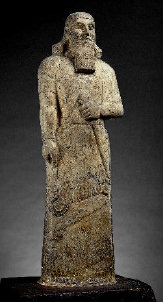 |
This Assyrian artifact, Statue of the King, is made from magnesite and is part of “Art and Empire: Treasures From Assyria In The British Museum,” at the Museum of Fine Arts, Boston. |
Taken together, the carvings and other materials paint a surprisingly intimate — and at times harrowing — portrait of what’s known as the Neo-Assyrian empire.
The show’s opening gallery, for example, features works created specifically for Assyria’s ruling elite. They include several large stone bas reliefs that once adorned the royal palace at Nineveh, near the present-day city of Mosul in northern Iraq. Carved from heavy slabs of gypsum, they depict stylized gods and warriors whose presence was thought to help protect against evil spirits.
Another highlight is a small but finely carved statue of Ashurnaspiral II (883-859 B.C.), considered the founder of the Assyrian empire. Fashioned from a solid block of magnesite, a rare stone that was most likely brought back as a piece of war-booty, it shows the king wearing a short-sleeved tunic under a cape whose fringed edges fall in rhythmical folds across his thighs and legs.
In a show of humility, Ashurnaspiral’s head has been left uncovered. But in other respects, the statue is a testament to the king’s power in worldly and spiritual affairs. An Assyrian viewer, for example, would have immediately recognized the mace that Ashurnaspiral holds in his left hand as a reference to the king’s role as an agent of Ishtar, the Assyrian goddess of love and war. A cuneiform inscription on the king’s chest, meanwhile, includes an account of a successful military campaign.
Besides showing off the skills of Assyrian artisans, such works also highlight one of the main themes of the exhibit — that in ancient Assyria, the realms of art, power and religion were deeply intertwined. Of course, the same thing could be said of many other cultures, but the Assyrians seem to have taken the mingling of art and propaganda to new levels of sophistication.
Art and politics also lie at the heart of one of the show’s most dramatic pieces: a huge stone mural depicting a battle between the Assyrians and their southern neighbors, the Elamites. Carved on a series of horizontal panels, the mural is crammed with scenes worthy of a Hollywood swords-and-sandals epic: rival armies advancing with swords and spears at the ready; fallen soldiers, some dead with others writhing in pain; panic-stricken horses fleeing across fields littered with dead bodies.
Yet the mural also has a story to tell.
In a series of smaller vignettes, we can follow the action as the Assyrian cavalry attacks and overruns the Elamite positions. We can watch as the chariot carrying the Elamite king and his son crashes, spilling its occupants to the ground. And we can cheer — or not — as Assyrian soldiers surround the two men and, after killing them with axes and maces, gleefully chop off their heads.
Though not as finely carved as some of the other show’s other works, the Battle of Til-Tuba, as the mural is known, is certainly one of the most striking. Indeed, its scene-by-scene layout feels surprisingly modern — a distant ancestor of today’s comic books and graphic novels.
In addition to Ashurnaspiral II and Ashurbanipal, visitors to “Art and Empire” will also meet several other notable figures from the ancient Middle East. One is Ashurnaspiral’s son, Shalmaneser III (858-824 B.C.), whose reign is commemorated by a striking set of decorative door hinges. In typical fashion, the hinges (actually, thick metal straps that ran across the front of the doors and helped hold them together) are covered with scenes from Shalmaneser’s military campaigns.
Another important figure is Sennacherib (704-681 B.C.). It was during his rule that Nineveh became one of the greatest cities of the ancient world — a fact confirmed by the Old Testament’s Book of Jonah, which refers to Nineveh “an exceedingly great city.” A few pages later, of course, the same Book of Jonah predicts that Nineveh will be destroyed by an act of God
That’s when European explorers — led by the great British archaeologist Austen Henry Layard — began a series of excavations of Nineveh and another city, Nimrud. Over a span of about 10 years, Layard and his colleagues uncovered thousands of objects, ranging from huge temple statues weighing hundreds of tons to smaller pieces of pottery, glass and jewelry.
Layard’s contributions, which also included several popular books that helped spark public interest in the Middle East, are chronicled in a separate gallery attached to the main exhibit.
“Art and Empire: Treasures from Assyria in the British Museum” runs through Jan. 4 at the Museum of Fine Arts, 465 Huntington Ave., Boston. Museum hours: Tues. and Sat.-Sun. 10-4:45 and Wed.-Fri. 10-9:45. Exhibit admission: $25 adults, $23 seniors and students, $9.50 children 7-17 and free under 7. (Note: prices include general museum admission; all tickets are for reserved date and time only.) Contact: (617) 267-9300 or visit www.mfa.org.
Archaeologists Uncover Ancient Governor's Palace In Turkey
Courtesy of the Science Daily
21 October 2008
Adapted from materials provided by University Mainz.
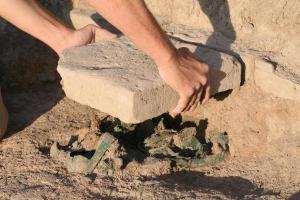 |
| Discovery of a rare treasure trove of more than 20 bronze vessels under the paving stones in the courtyard. (Credit: Ziyaret Tepe Archaeological Project) |
(ZNDA: Diyarbakir) Within the scope of an international rescue excavation project, a team of four archaeologists specialized in Middle Eastern affairs headed by Dr. Dirk Wicke (Institute of Egyptology and Ancient Near Eastern Studies) have unearthed parts of a Neo-Assyrian governor's palace dating back to the 9th to 7th century BCE in a two-month excavation program amongst the ruins on Ziyaret Tepe. The discoveries were extraordinary.
The site in the south-east of Turkey (Diyarbakir province) is at risk from the construction of the Ilisu Dam. For several years now it has been investigated by teams from the universities of Akron (Ohio), Cambridge, Munich and Istanbul (Marmara University) in a joint excavation project. Sponsorship by the research funds of the Johannes Gutenberg University Mainz in 2007 and 2008 gave its archaeologists the opportunity to become involved in this international and multi-disciplinary project. There are plans to continue the project for another three years.
The Upper Tigris region came under the sway of the Assyrians in the middle of the second millennium BCE. They established their provincial capital in Tushan which is identified today as Ziyaret Tepe. According to historical inscriptions by the Assyrian ruler Assurnasirpal II it is certain that the construction of an administrative palace in Tushan dates back to the year 882 BCE. The excavation area of the Mainz team comprises the topmost parts of the acropolis, which must have been subsumed by the governor's palace. Parts of the private residential area and a courtyard have already been uncovered. The main rooms were well equipped - amongst the findings were colorful wall paintings and a facility for an oven on wheels.
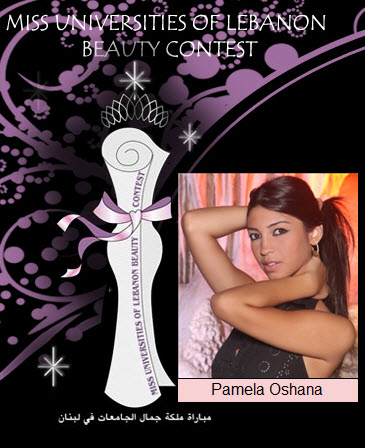 |
Click Ms. Oshana's Photo to Vote |
But the most unusual discovery was the excavation of cremations in pits within the extensive courtyard area. Five installations have been found to date, two of which were undisturbed and contained opulent burial goods. In the rectangular graves of approximately 1.50 m x 2.00 m in size, for example, a considerable layer of ash and burned bones as well as numerous bronze vessels, sumptuous stone and ivory receptacles, carved ivory objects, seals, and beads were found. These items indicate the high status of the people buried here. They are believed to have been residents of the palace. These objects are very similar to those found in the Assyrian capitals of Assur and Kalhu/Nimrud in modern day Iraq.
In addition to the cremation remains found this year, a rare treasure trove of more than 20 bronze vessels was discovered under the paving stones in the courtyard. These include a jug, a wine ladle, a sieve, several bowls and cups, mostly made from embossed bronze, which are now waiting to be restored. This will reveal their elaborate ornamentation which can already be made out under the corrosion layer.
The archaeological research project at Ziyaret Tepe (Turkey) undertaken by the Institute of Ancient Near Eastern Studies of Mainz University, which was set up 10 years ago, adds a new field archaeological portfolio alongside the excavations in Haft Tappeh and Tchogha Zanbil (Iran). It enables its students to work in the region in which they specialize and makes them part of an international research project.
Assyrian Artifact Finds New Home at Cal State University Stanislaus
Courtesy of the Turlock Journal
30 September 2008
By Sabra Stafford
For over 40 years a rubbing reproduction of an Eighth century Assyrian monument hung in Samuel Ayoubkhani's home as a treasure that only friends and family saw.
Now, the artifact of two cultures is on display for all to see through Ayoubkhani's donation to California State University, Stanislaus.
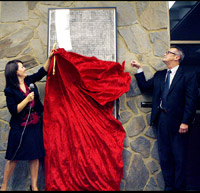 |
Photo contributed Susana Gajic-Bruyea and Carl Bengston unveil the Assyrian artifact donated by Dr. Samuel Ayoubkhani to California State University, Stanislaus during a Friday evening ceremony. |
The rubbing reproduction of the Nestorian Monument was unveiled Friday night to an overflow crowd at the university's library and there it will hang for all to enjoy.
"It has made me very happy to give this to the university, because first of all, it's educational for the students and because there are thousands of Assyrians in Stanislaus that can now come and see it," Ayoubkhani said.
The Nestorian Monument was erected in 781 AD in China during the Tang Dynasty. The black marble monument was to recognize the work of Assyrian missionaries, who 150 years earlier, had helped introduce Christianity to China. The monument bears inscriptions in both Chinese and Syriac that were composed by an Assyrian priest. It's believed that the monument was buried by Christians in 845 AD as a way to save the stone from destruction during a religious persecution by Emperor Wa-Tsung.
It's date of rediscovery is up for debate as well as the exact location. Most scholars now believe it was found in 1625. Some accounts say it was found when a Chinese family was digging a foundation for their home. Other stories said it was found 30 miles away.
The monument's rediscovery in the 17th century raised considerable excitement for the Jesuit missionaries in China. The emperor at the time had railed against Christian teachings and had banned the practice because it was a new religion. Missionaries used the monument to prove Christianity had been in China a thousand years earlier.
The discovery of the rubbing reproduction of the ancient Assyrian artifact was itself a monumental moment for Ayoubkhani.
It was 1965 and he was a post-graduate student at Manchester University in the United Kingdom. His landlords would often invite him over for visits and conversation. One day, the chat turned to Ayoubkhani's ancestry and language. As Ayoubkhani described the Aramaic language and how it is written right to left, a twinge of remembrance came up in the man's eye. He shuffled off and a few moments came back with the rubbing.
"I was amazed the first time I saw it," Ayoubkhani said. "I knew it was about my ancestors."
Ayoubkhani bought the rubbing for 500 pounds, paid for in three installments.
It was at the May 2008 Mayor's Prayer Breakfast that Ayoubkhani first had the notion of donating the treasure.
"Dr. (Ham) Shirvani was reading from a passage in Jeremiah and it came to my mind the best place for it would be at the university," he said.
The mounted and framed monument rubbing will be displayed in the library along with other Assyrian artifacts that include a rare Assyrian Christian book collection donated by the Rev. Eshoo Sayad and a pair of bronze sculptures of King Ashurbanipal and Queen Shamiram, the last rulers of Assyria during the 6th and 7th centuries BC.
"It is in a place now where it can really be useful to the young people and all the knowledge can be shared with our neighbors and friends," said Lazar Piro, who spoke at the unveiling.
Digitizing Syriac in Kerala, India
Courtesy of the Hindu Magazine
14 September 2008
by K.P.M. Basheer
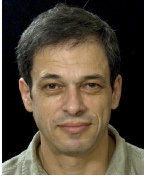 |
Preserving Syriac:
Prof. Istvan Perczel |
(ZNDA: Kerala) Prof. Istvan Perczel’s study of ancient Syriac documents in Kerala throws interesting light on the state’s past.
A Hungarian scholar of medieval Christianity is on a mission to preserve a slice of India’s Syrian Christian past. A slice that is written from right to left in a near-dead West Asian language and lies scattered in Kerala’s church attics, seminary vaults and ancient homes.
“There is a remarkably rich heritage of Syriac in Kerala, particularly from the 15th to 19th centuries,” says Istvan Perczel, who teaches at the Central European University, Budapest. Enchanted by this heritage, he has been digitising Syriac documents, correspondence and religious writings. “Syriac thrived in Kerala even while this sacred language was fading away from its place of birth,” Prof. Perczel notes.
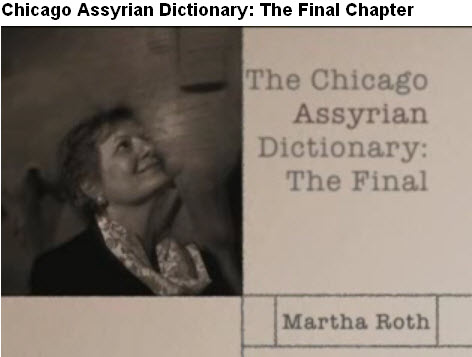 |
Chicago's Oriental Institute has posted a video documenting the Chicago Assyrian Dictionary (CAD) project now that is winding down. The CAD is one of the greatest achievements within Humanities research in the previous century. It was started in 1921 and was intended to be the authoritative dictionary/lexicon of Akkadian. It certainly has accomplished this goal. Furthermore, the history of the project is quite exciting with many twists and turns, personality conflicts, and achievements along the way. Click the image above to view this fascinating documentary. |
But, Syriac, which contributed several words to the Malayalam language, has all but vanished, mainly because most churches replaced it with Malayalam as the language of worship. Tonnes of centuries-old Syriac manuscripts are being gnawed at by termites and Time. Prof. Perczel has, over the past eight years, visited several seminaries and homes looking for manuscripts. Old seminaries that kept invaluable manuscripts in their vaults allowed him to photograph, copy and digitise. “The number of hitherto-unknown Syriac texts we uncovered is virtually uncountable,” he said. One is a 17th century poem written by Kadavil Chandy Kathanaar, a prominent clergyman who was known as “Alexander the Indian”. There have been families who specialised in Syriac learning and teaching.
Based on the study of the manuscripts, Prof. Perczel now questions the received wisdom that the Portuguese missionaries burnt most of the Syriac religious writings at the Synod of Diampur. The synod — held in 1599 at Udayamperoor, some 20 km from Kochi, at the behest of the then Portuguese archbishop of Goa, Alexis de Menesis —was a landmark in Kerala’s Christian history. The Portuguese, who thought the practices and liturgy of the native Christians heretical, burnt the texts and sought to replace them with Latin liturgy. Following the 1653 Coonan Cross Oath at Kochi, the Syrian Christians revolted against the Portuguese missionaries and temporarily seceded from the Roman Church. The fact that the researchers could find “heretical” Syriac texts, according to Prof. Perczel, shows that several such texts could have survived the synod and that the burning could even be a “myth”.
Pazuzu Atop London's Institute of Contemporary Arts
Courtesy of the Los Angeles Times
14 October 2008
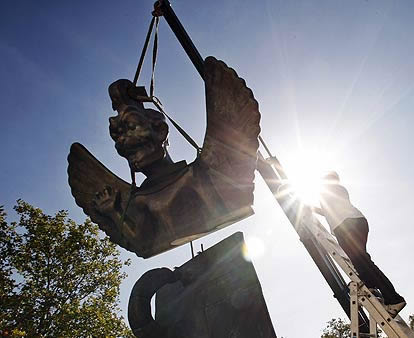 |
Roberto Cuoghi's statue of Pazuzu on the roof of the ICA. Photo: Zoe Franklin. |
(ZNDA: London) Workmen install a fiberglass statue of the Assyrian god Pazuzu onto the rooftop of the Institute of Contemporary Arts in London. In Assyrian and Babylonian mythology, Pazuzu was the king of the demons of the wind and son of the god Hanbi. The statue is part of the exhibition "Suillakku," the first U.K. solo show for Italian artist Roberto Cuoghi.
Šuillakku is an immersive, hugely evocative sound installation filling our lower gallery. Italian artist Roberto Cuoghi undertook an imaginative journey back to Mesopotamia in the seventh century BC, when the Assyrian empire was falling into ruin and the city of Ninevah (the site of which is in modern-day Iraq) was ransacked by its enemies. Inspired by Assyrian lamentations to their gods, this intense aural landscape gives the visitor the impression of being surrounded by hundreds of people at a time of great suffering.
To create Šuillakku, Cuoghi spent two years immersed in the language and rituals of the Assyrians. The soundtrack he composed draws on this research and is enriched by his imagination. The work employs a huge range of musical instruments, many of which were recreated especially for the piece. Of equal importance to Šuillakku is its vocal aspect: a vast chorus which Cuoghi created by multiplying and mutating his own voice into an extraordinarily potent, cacophonous assault.
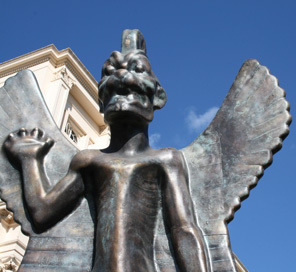 |
In the process of his research Cuoghi frequently came across the demon Pazuzu, a metamorphic being with the head of a dog, the horns of an antelope and the tail of a scorpion. Pazuzu was one of the most feared spirits in the Assyrian pantheon, and images of him were used as charms, placed at entrances and gateways to drive away lesser spirits. The final element in the exhibition is an image of this demon, looking out over The Mall. Ironic and disturbing, Cuoghi’s invocation of a civilisation in crisis operating under a fearful irrationality offers a new perspective on our own moment in history.
Listen to an extract from Šuillakku. (mp3)
Cuoghi has worked with a wide range of techniques including photography, video, animation, painting, drawing and sound. He is famous for his acts of transformation and at the age of 25 he embarked on a seven year process in which he took on the image of his father, including wearing his father’s clothes, turning his hair grey and gaining more than 50 pounds.
The exhibition is curated by Marcella Beccaria and organised by Castello di Rivoli, Museum of Contemporary Art, Rivoli-Turin. |

